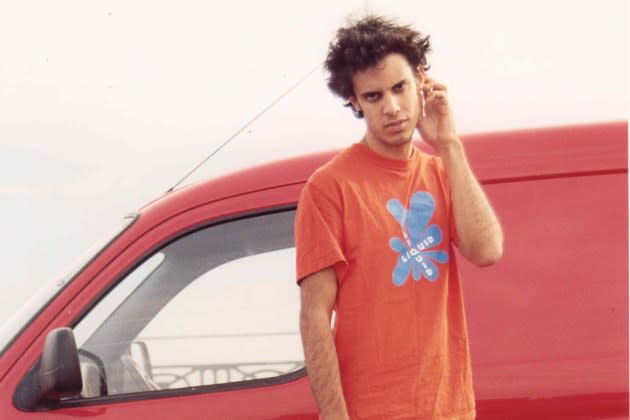Four Tet Subverts Expectations With ‘Three’

There are several moments on Four Tet’s new album Three that sound like Aphex Twin B-Sides, which is less a sign of a lack of imagination but instead, proof of how widespread a particular take on ambient music has become. Maybe chalk it up to YouTube’s recommendation algorithm, the platform is awash in hour-long mixes of Aphex Twin tracks on loop (sometimes accompanied by a video of a serene-looking monkey relaxing in a lake), designed to play while you focus on work or school, or whatever. Four Tet has similarly become the subject of such mixes, his sound so well established as to become a kind of meme of itself. All of which is to say his 12th full-length album, released last week, at times sounds familiar. In the musician’s sprawling career as one of electronic music’s foremost innovators, he’s partly responsible for how saturated his own brand of sonic atmospherics has become—a victim of his own success.
Three arrives four years after Four Tet’s last release, 2020’s much-acclaimed Parallel, which assembled a smattering of new songs alongside tracks that were previously released under an impossible-to-find pseudonym on various streaming platforms. Ironically, in the time since his last album, Four Tet has arguably become a household name, as young audiences become infatuated with nostalgia for dance music’s heyday and as acts like Fred Again and Overmono have entered the forefront of pop culture. He’s played a sold-out Madison Square Garden alongside Skrillex and collaborated with legendary producer Madlib on his excellent 2021 debut, Sound Ancestors.
More from Rolling Stone
His latest feels sonically connected to that record with Madlib—the sounds are lush and robust, like on opener, “Loved” which rides a slowed breakbeat that feels plucked from space, before ushering in the warm, glittering pads that one might describe as Four Tet’s signature. Thankfully, he finds enough new terrain throughout the album to keep things interesting. “Daydream Repeat” juxtaposes maximalist drum distortion and featherweight harps before settling in on an undulating drum pattern that, while stylistically familiar to, say, this Four Tet remix of Ne-Yo, feels refreshing in its context. “Skater,” has the lonesome-sounding guitar riffs of a Smashing Pumpkins cut, interjected with angelic-sounding vocals pitched in various keys almost to sound like harps.
There are the expected club-oriented tracks, like “31 Bloom” which skirts along a UK Garage-style two-step that progressively gets more intricate as the song goes on. Subtlety is perhaps Three’s greatest strength. “So Blue,” opens with patiently building synth chords, interrupted by the faintest vocal sample before blooming into a pared-back breakbeat that subverts your expectations, landing somewhere far more textured and muddy versus the crystalline drum patterns that Four Tet’s managed to make a name for himself with.
Nearly 30 years into his career, Four Tet seems to be finding new terrain within well-established sounds, many of which he pioneered. The result is a pleasantly surprising addition to the canon of electronic music. The album closer “Three Drums” sort of feels like an old Moby song, but rendered in a new, delicate light, unearthing new textures and emotions in the process. Sort of like the way Madlib can create alternate histories out of samples, Four Tet’s latest is proof that he’s got a detailed enough touch to breath new life into previously trodden terrain, algorithms be damned.
Best of Rolling Stone